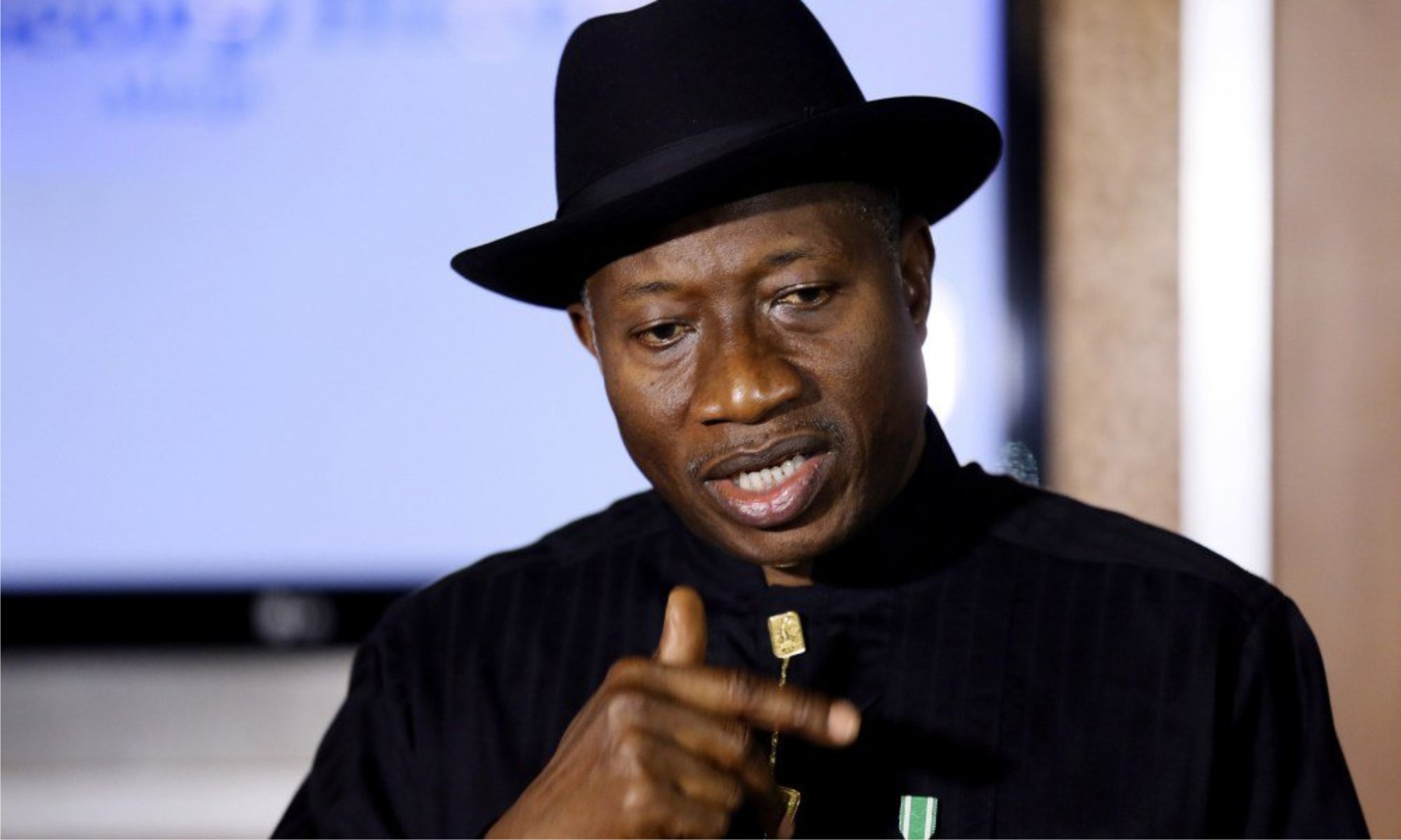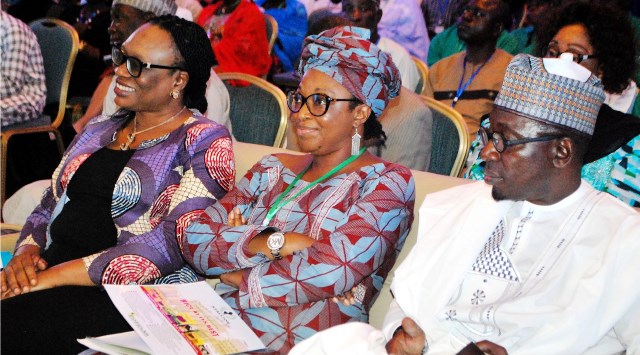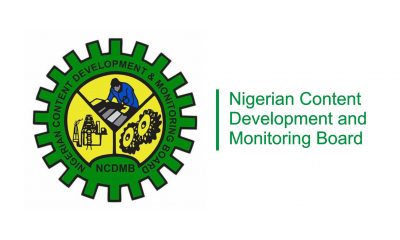News
Jonathan, Wike, Others Condole Buhari Over Abba Kyari’s Death

The former military President of Nigeria, Gen. Ibrahim Babangida, yesterday, condoled with President Muhammadu Buhari over the demise of his Chief of Staff, Malam Abba Kyari.
Babangida, in his message to the President, described Kyari as a very dedicated, conscientious, forthright, roundly qualified, astute, and patriotic servant of Nigeria.
According to him, as chief of staff, he pre-occupied himself to always stand by you as a loyal staff, friend, and adviser, who always answered the call to duty.
Babangida said: “He was always ready to render you the necessary support in line with the policy principles and objectives of your administration.
“I have no iota of doubt that Kyari had performed all his tasks creditably to your absolute satisfaction believing in his capacity and competency, he was honest, simple, humble, and transparent.
“He always puts the people, the nation, and your good self first in all his actions and duties.
“Undoubtedly, you and his family will miss Kyari the most, as Muslims, we believe and accept that we shall all return to Allah, the Supreme Giver of Life.
“It is stated in the traditions of our beloved Prophet Muhammad, that whosoever dies as a result of an epidemic affliction is a martyr, and I fervently pray so it shall be for Kyari.
“I pray that Allah will accord him the reward and honour as a martyr.
“Additionally, Kyari also passed on one of the most auspicious days for Muslims, namely Friday.”
Babangida said that the President had lost a great ally, friend, admirer, and compatriot who served him and the nation with extreme loyalty and patience.
He urged the President, as a committed Muslim with a depth of faith and as a gallant military officer who fought to unite this country, to take solace in the legacies left behind by Kyari.
“Please, remain steadfast in the challenging tasks heaved upon you, our country, and people by the Covid-19 epidemic. I pray for the quick end of this deadly scourge,” he said.
He also prayed to Allah to shower His Mercy and Forgiveness on Kyari by placing him among the dwellers of His Highest Paradise.
“And to his immediate family, I pray to Allah to grant you the fortitude to bear this irreparable loss of a decent man with equanimity,” he said.
Also, the former Presidents Olusegun Obasanjo and Goodluck Jonathan condoled with the President and the Kyari family over the death of the late chief of staff, who was buried earlier on Saturday in Abuja.
A statement by Senior Special Assistant to the President on Media and Publicity, Garba Shehu, said Buhari also received condolence messages from Governor Abubakar Atiku Bagudu of Kebbi State on behalf of the Progressive Governors Forum, Plateau State Governor, Simon Lalong on behalf of the Northern Governors’ Forum and Ekiti State Governor, Dr Kayode Fayemi on behalf of the Nigerian Governors’ Forum as well as Governor Abdulrazaq Abdulrahman of Kawra State and Senator Umar Ibrahim Kurfi.
Similarly, the Rivers State Governor, Chief Nyesom Wike, commiserated with President Muhammadu Buhari over the death of his Chief of Staff, Mallam Abba Kyari.
A statement by the state Commissioner for Information and Communications, Pastor Paulinus Nsirim, in Port Harcourt, last Saturday, quoted Wike as stating that “the death of Abba Kyari was a great loss not only to President Buhari but the entire nation”.
He described him as a patriot, trustworthy, humble and caring leader who contributed immensely to the development of the country.
In the same vein, the Bayelsa State Governor, Senator Douye Diri, commiserated with President Muhammadu Buhari over the death of his Chief of Staff, Mallam Abba Kyari.
A statement by Acting Chief Press Secretary to the Bayelsa State Governor, Mr Daniel Alabrah, said, Diri also condoled with the Kyari family, saying his departure was a huge loss to Nigeria.
He prayed for the repose of his soul and for his memory to be blessed continually.
Meanwhile, President Muhammadu Buhari, had last Saturday, received several messages of condolences from foreign and national leaders over the death of Abba Kyari, his late chief of staff.
A statement by Garba Shehu, indicated that the President received telephone calls from Ghanaian President, Nana Akuffo-Ado, and President Muhammadou Youssoufou of Niger Republic.
He also received calls of condolences from ex-President Yayi Boni of Benin Republic and two former Nigerian Heads of State, Generals Yakubu Gowon and Abdulsalami Abubakar.
Buhari also received similar messages of condolence from the embassies of friendly countries, including Egypt, Chad and Liberia, as well as US President Donald Trump.
Messages were also received from Governors Nasir El-Rufa’i of Kaduna State; Yahaya Bello of Kogi State; Prof Babagana Zulum of Borno State; Abubakar Bagudu, Kebbi; Abdullahi Umar Ganduje of Kano State; former governors of Katsina, Sa’idu Barda; Zamfara, Abdulaziz Yari; and Abdulfatah Ahmed of Kwara as well as the former Senate President, Ken Nnamanni; the Sultan of Sokoto, Dr. Sa’ad Abubakar 111; and the President of the Christian Association of Nigeria, Rev. Samson Ayokunle; and former Secretary to the Government of the Federation (SGF), Babachir Lawal.
The Emirs of Kazaure, Najib Hussaini Adamu; Gwandu, Gen Muhammadu Ilyasu Bashar (rtd); and that of Machina, Alhaji Bashir Al-Bashir Bukar; APC National Leader, Asiwaju Bola Ahmed Tinubu; the Chairman of Zenith Bank, Jim Ovia; President, Dangote Group, Aliko Dangote; and the Executive Secretary of the Lake Chad Basin Commission, Amb Mamman Nuhu; were among the early callers.
Calls to the President were also received from Sheikh Dahiru Bauchi; former ministers, Senator Udoma Udo Udoma; and Gen Ike Umaru Sanda Nwachukwu; Senators Monsurat Sunmonu; and Kabiru Marafa as well as Pastor Tunde Bakare.
News
Bill For Compulsory Counselling For Convicted Corrupt Nigerians Scales Second Reading
A bill to amend the Corrupt Practices and Other Related Offences Act 2000 has passed its second reading in the House of Representatives.
The bill, which mandates compulsory counselling and training for individuals convicted of corruption-related offences, was sponsored by Kayode Akiolu (APC-Lagos) during plenary on Wednesday.
Leading the debate, Mr Akiolu explained that the bill sought to amend Section 67 of the principal act, introducing new provisions that were not part of the original section.
“These additional provisions, found in subsections 2, 3, and 4 of the amendment bill, require judges and magistrates to not only impose imprisonment and/or fines on those convicted of corruption but also mandate a minimum four-week anti-corruption counselling and training.
“The counselling and training will be designed and delivered by the Anti-Corruption Academy of Nigeria (ACAN) and aims to address the psychological factors related to corrupt behaviour,” Mr Akiolu said.
Mr Akiolu emphasised that the training would help reform convicts by addressing their corrupt tendencies and could even transform them into advocates for anti-corruption efforts.
He added that this approach aligned with the reformative aspect of the criminal justice system, which focused on punishment and rehabilitation.
“As per subsection 4, the bill allows magistrates and judges to order convicts to cover the cost of their counselling and training, preventing additional financial burdens on the government,” the lawmaker noted.
Mr Akiolu further argued that if the bill is passed into law, it would strengthen the country’s fight against corruption.
Given the widespread negative impact of corruption, he urged the House to support the bill for the country’s benefit.
Following the debate, Speaker Tajudeen Abbas referred the bill to the relevant committee for further legislative consideration.
News
Judiciary, Media Key Pillars Of Democracy, Says CJN

The Judiciary and the Media are key pillars of democracy, the Chief Justice of Nigeria (CJN), Justice Kudirat Kekere-Ekun, has said.
Kekere-Ekun made this statement in her address at the 2024 National Conference of the National Association of Judiciary Correspondents (NAJUC).
The CJN was represented by Mr Abdulaziz Olumo, the Secretary of the National Judicial Institute (NJI).
“ The judiciary and the media occupy unique and complementary roles in any democratic society.
“ The judiciary serves as the guardian of justice, equity, and the rule of law, the media acts as the conscience of society, disseminating information, shaping public opinion, and ensuring accountability.
“ Together, these institutions provide checks and balances that strengthen the fabric of democracy,” she said.
Quoting Felix Frankfurter, a former U.S. Supreme Court Justice, she said: free press is not to be preferred to an independent judiciary, nor an independent judiciary to a free press. Neither has primacy over the other; both are indispensable to a free society.”
The CJN said this dynamic interdependence between the judiciary and the media presents opportunities and challenges alike.
“ The media is entrusted with the responsibility of informing the public about judicial activities, the judiciary relies on accurate and ethical reportage to enhance public confidence in its work.
“ However, the inherent power of the media to influence public opinion requires careful management, especially when its focus turns to judicial proceedings.
“ The question posed by Robert J.Cordy, a former Associate Justice of the Massachusetts Supreme Judicial Court, is pertinent here: “What happens when the free press turns its sights on the courts-scrutinizing, sensationalizing, and exposing the frailties of the judiciary while questioning its ethical standards and performance?”
“The media’s capacity to shape narratives and perceptions is undeniable” she said.
Quoting Jim Morrison , she said “Whoever controls the media controls the mind.”
According to her, this underscores the immense responsibility placed on journalists to report truthfully, fairly, and objectively.
“ Unfortunately, the commercialisation of news and external influences have led to the rise of sensationalism-a practice that distorts facts, erodes trust, and undermines the very essence of journalism.
“ Sensationalised headlines, such as the infamous 2016 headline “We raided the houses of ‘corrupt, unholy’ judges, says DSS,” can paint a skewed picture of the judiciary and its officers. Such reporting, often devoid of context, compromises the integrity of the justice system and misleads the public.
“ Closely tied to this is the issue of “trial by media,” where premature and often biased media narratives prejudge cases and infringe on the constitutional rights of individuals” she said.
She added that as Mahatma Gandhi rightly observed, “The sole aim of journalism should be service.” It is imperative for media practitioners to remain steadfast in their commitment to truth and objectivity.
To this end, she advised, the National Association of Judiciary Correspondents to take proactive steps to regulate the activities of its members.
“ This is not merely about enforcing rules but about fostering professionalism and safeguarding the credibility of the media.
“ The judiciary and the media must work as partners in progress.
“ To bridge the gap between these institutions, there is a pressing need for constructive engagement and mutual understanding.
“ Courts can provide the media with guidelines on judicial processes, courtroom decorum, and the nuances of court proceedings.
She noted that globally, courts have adopted initiatives to support the media’s role in reporting judicial matters.
For instance, she said the Supreme Court of Dakota’s media guide outlines protocols for courtroom reporting, while the UK ‘s Media Guidance document provides clarity on access and etiquette for journalists.
“ These examples demonstrate how structured collaboration can enhance the quality of judicial reportage.
“ In Nigeria, we can take a cue from these models by developing a comprehensive media guide tailored to our judicial landscape.
“ This initiative, which would involve inputs from NAJUC and judicial stakeholders, would not only enhance media access to courtrooms but also ensure that judicial activities are accurately and responsibly reported” she said.
She advocated that judiciary correspondents must make deliberate efforts to familiarise themselves with the rules and procedures of the courts.
She added that understanding these frameworks will enable journalists to navigate the complexities of judicial proceedings effectively and responsibly.
“ Training programs such as this conference play a crucial role in equipping judiciary correspondents with the knowledge and skills needed to report judicial matters accurately.
“ The theme of this year’s conference, “The Role of Courts in Enforcement of Judgments,” is both timely and significant, as it addresses an aspect of judicial work that is critical to upholding the rule of law and ensuring justice.
“ I commend NAJUC for its commitment to promoting accountability and transparency through its engagements with the judiciary.
“ As I conclude, I must emphasize the importance of credible journalism in strengthening public trust in the judiciary” she said.
She urged judiciary correspondents to prioritise the pursuit of truth and objectivity, resist undue influences, and remain steadfast in their commitment to ethical standards.
She commended the leadership of NAJUC, under the chairmanship of Mr Kayode Lawal, for its efforts in promoting professionalism among judiciary correspondents.
News
Senate Issues Arrest Warrant Against Julius Berger MD Over Road Project

The Senate has issued an arrest warrant for the Managing Director of Julius Berger Nigeria Plc, Dr Peer Lubasch, to appear before its Committee on Works.
The Tide’s source reports that the warrant was for Lubasch to explain the utilisation of funds appropriated for the reconstruction work on Calabar-Odukpani-Itu highway.
The warrant followed the adoption of a motion sponsored by Sen. Osita Ngwu (PDP- Enugu) and co-sponsored by Sen. Asuquo Ekpenyong (APC-Cross River) and Sen. Mpigi Barinada (PDP- Rivers) at plenary in Abuja, yesterday.
Ngwu, in the motion said, that the senate had mandated the committee on works to conduct investigation into the state of road infrastructure across the country.
He said that in furtherance to the investigative hearings, Julius Berger refused to honour invitations to provide details of its role in the Calabar-Odukpani-Itu highway project, in spite of receiving substantial public funds.
He said that this was worrisome, given the alarming discrepancies in performance among contractors on the project, with specific reference to Julius Berger for failing to meet delivery timelines.
Ngwu said it was the constitutional powers of the National Assembly under Sections 8 and 89 of the 1999 Constitution, as amended, to conduct investigations on any person or organisation responsible for administering public funds.
He said that the powers set out in section 6 of the legislative powers and privileges act empowered the Senate to issue warrants of arrest on persons in contempt of its proceedings.
The Tide source reports that the senate further ruled that President of the Senate, Godswill Akpabio, should sign the warrant, mandating the Julius Berger managing director to appear on a date to be communicated.
Akpabio said that the senate’s decision was in line with its constitutional powers under Section 89 of the 1999 Constitution (as amended).
“This senate will not tolerate the continued disregard of its authority.
“The managing director of Julius Berger must appear before the relevant committee, failing which further actions will be taken as prescribed by the constitution.
“The point of order, which was supported by the majority of the senators, highlighted the importance of upholding the integrity of the legislature.
“The senate committee will submit its findings to the National Assembly after the MD’s appearance.
“If there is any further failure to comply, we shall take the necessary steps to ensure respect for the constitution and the rule of law,” Akpabio said.
-

 Business3 days ago
Business3 days agoIFAD, VCDP Harp On Rice threshing Machines To Boost Harvest
-

 Featured3 days ago
Featured3 days agoWe’re Working To Improve Quality Of Life Of Rivers People -Fubara …As Taraba Gov Inaugurates 6.55km Okania-Ogbogoro-Mgbaraja Roads Project
-
Sports3 days ago
NBF Announces Olympics Preparation Date
-
Nation3 days ago
Community Organises Civic Reception For LG Boss
-
Rivers3 days ago
Expert Advocates IT Driven Security In Rivers
-
News3 days ago
Tinubu To Present 2025 Budget To NASS Dec 17
-
News3 days ago
Fubara Unveils Steps To Boost Agriculture In Etche …As Omehia Flags Off Egwi-Afara-Mba Road Project Says Road’ll Enhance Connectivity, Economic Activities
-

 Business3 days ago
Business3 days agoNCDMB Tasks Media Practitioners On Effective Reportage

